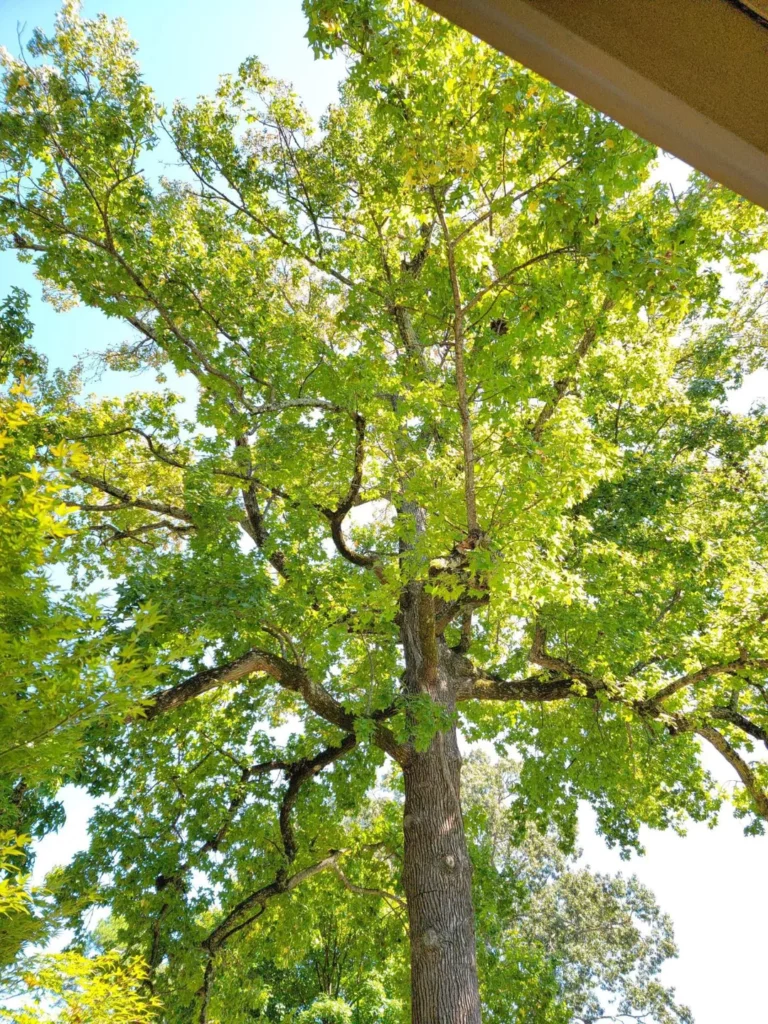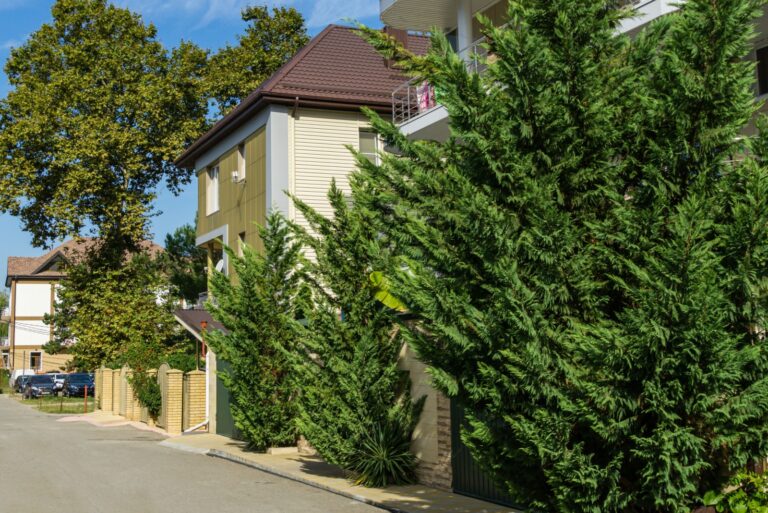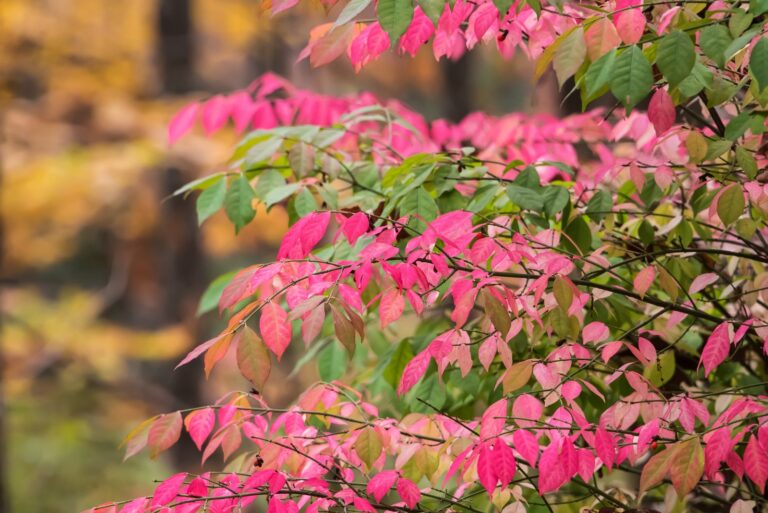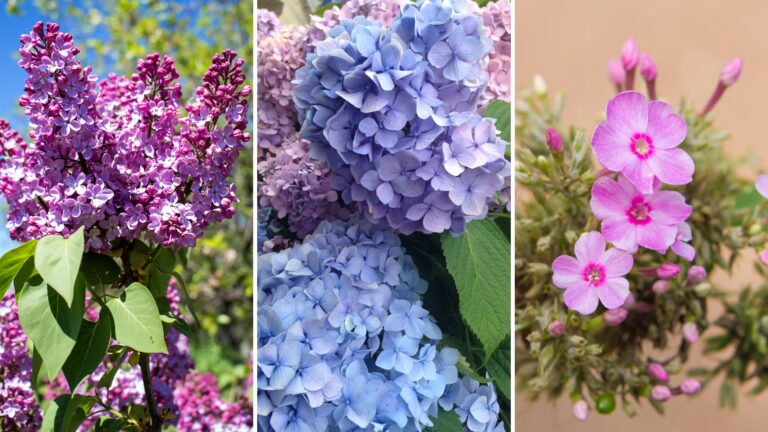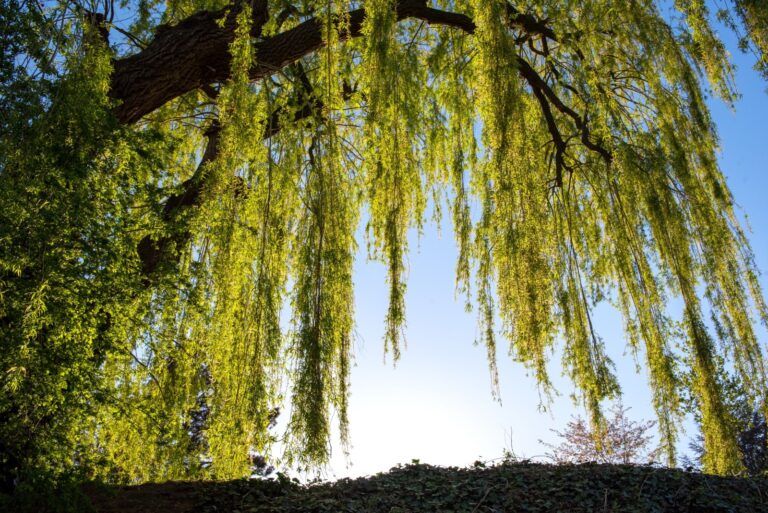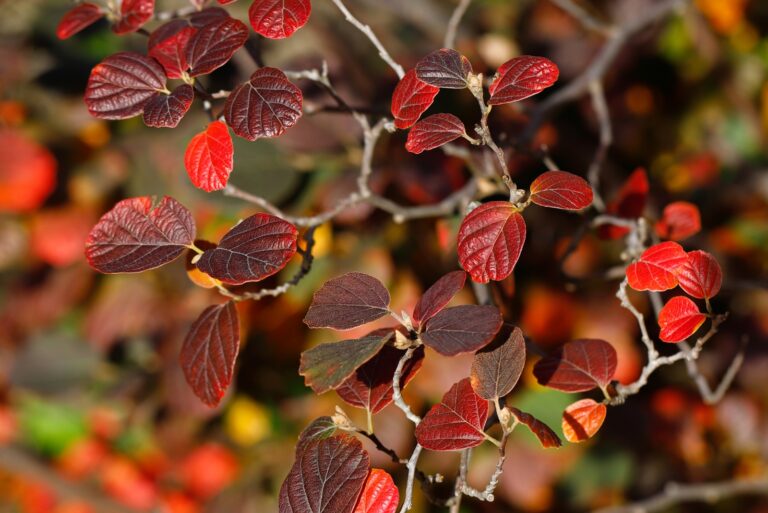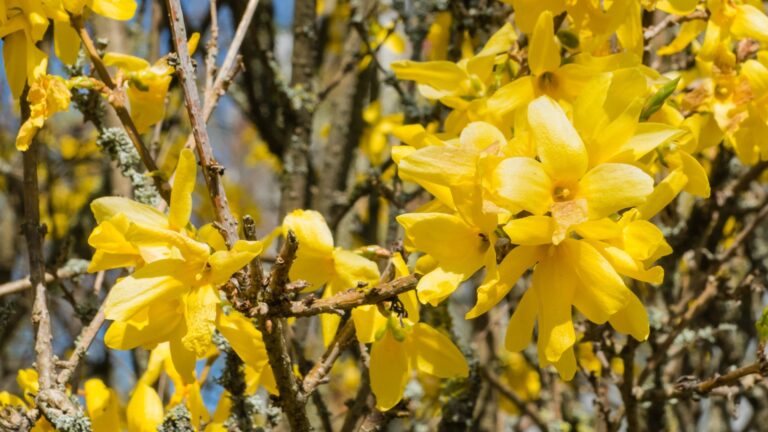23 Risky Trees You Should Never Plant Near Your House
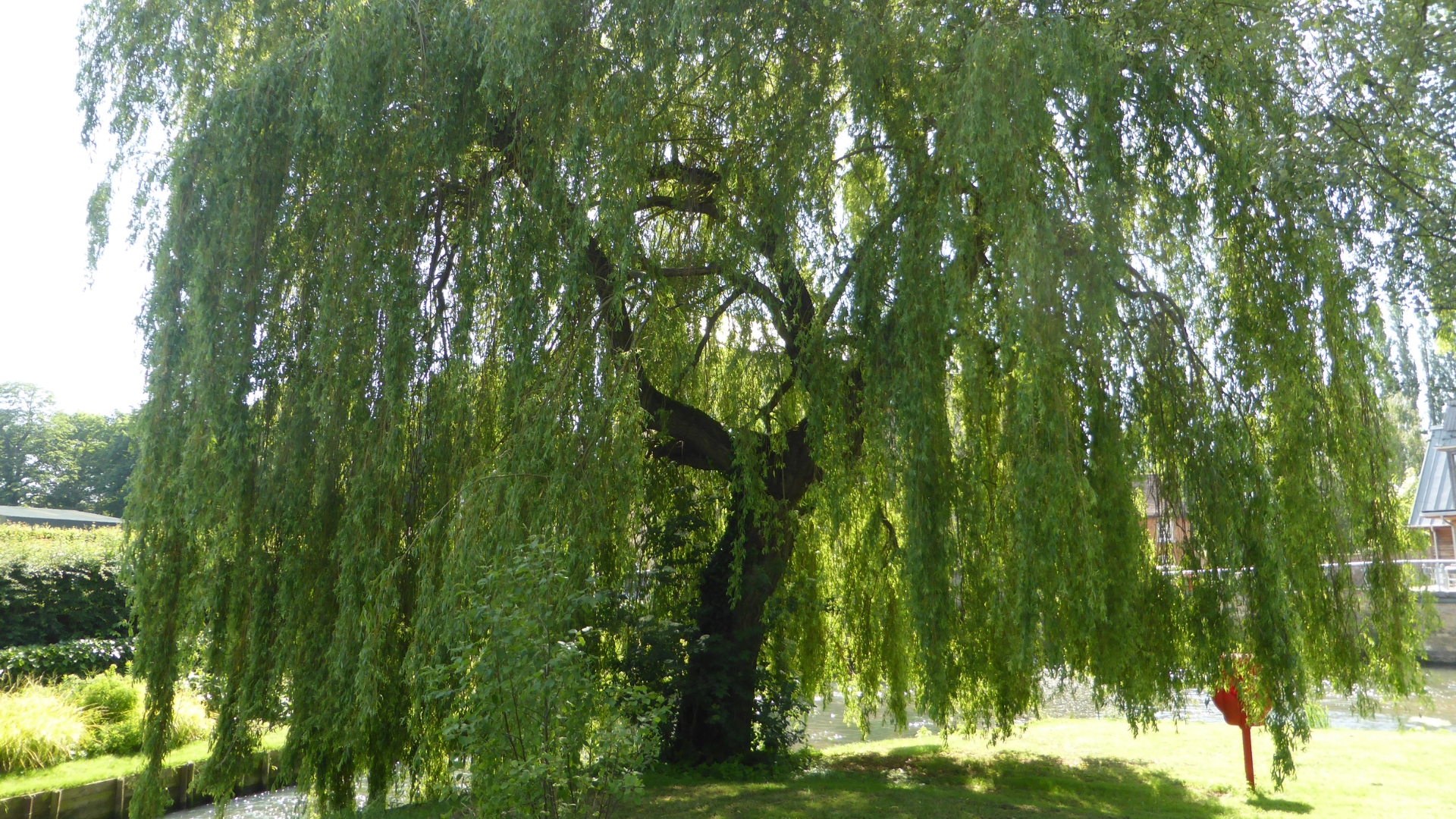
Some trees may look beautiful, but plant them too close to your house and you could be in for a world of trouble. I learned the hard way when a “harmless” tree started cracking my driveway and clogging my gutters like it had a personal vendetta.
From aggressive roots to falling limbs and nonstop mess, certain trees are more risk than reward. This list of 23 risky trees will save you future headaches—and possibly a hefty repair bill.
Trust me, your foundation (and your sanity) will thank you!
1. Bamboo
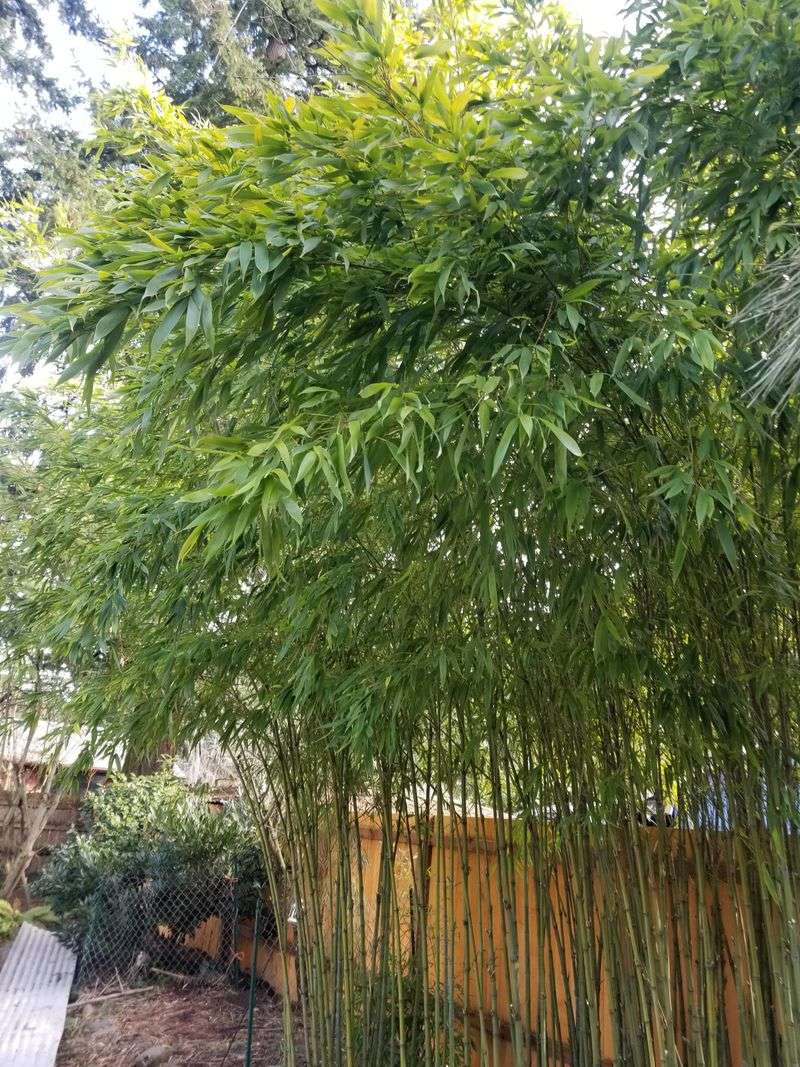
Fast-growing and dense, this plant can quickly invade your yard and even your neighbor’s. Bamboo’s rhizomes spread underground aggressively, creating a network that can be nearly impossible to eradicate.
While it might seem like a good idea for a privacy screen, its invasive nature could lead to endless battles to keep it contained. Additionally, its towering canes can become top-heavy and fall, potentially causing damage to nearby structures.
2. Willow Trees
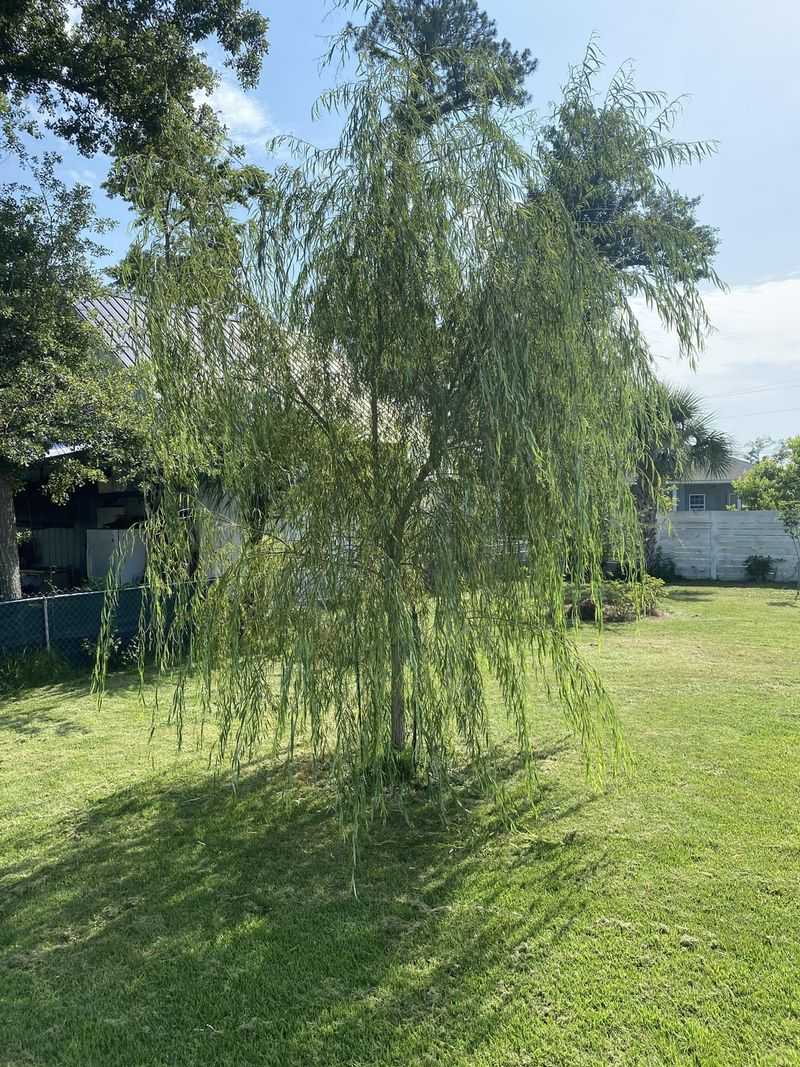
Known for their romantic, weeping branches, these trees might appear enchanting. However, willows have an insatiable thirst for water, and their roots will seek out moisture, often at the expense of sewer lines and foundations.
Their roots are notorious for causing structural damage, making them unsuitable for planting near homes or pools. Furthermore, they grow quickly and can become overwhelming in a small space!
3. Silver Maple
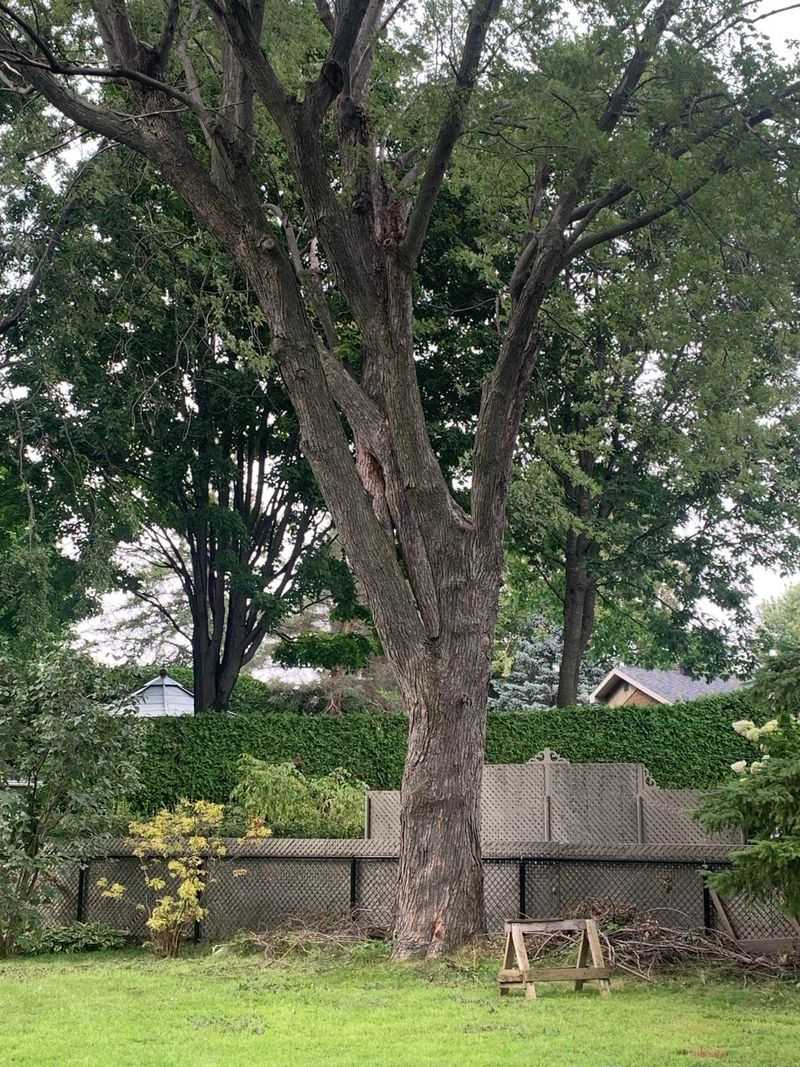
While admired for its fast growth and shade-providing canopy, this tree is not without its flaws. Silver maples have brittle wood, making them vulnerable during storms and high winds.
Their shallow, widespread root system can invade lawns, gardens, and even crack sidewalks or driveways. With roots known for seeking out water, your pipes may be at risk of damage.
Though they offer a quick shade solution, the maintenance and potential harm might outweigh the benefits, especially in residential neighborhoods.
4. Eucalyptus
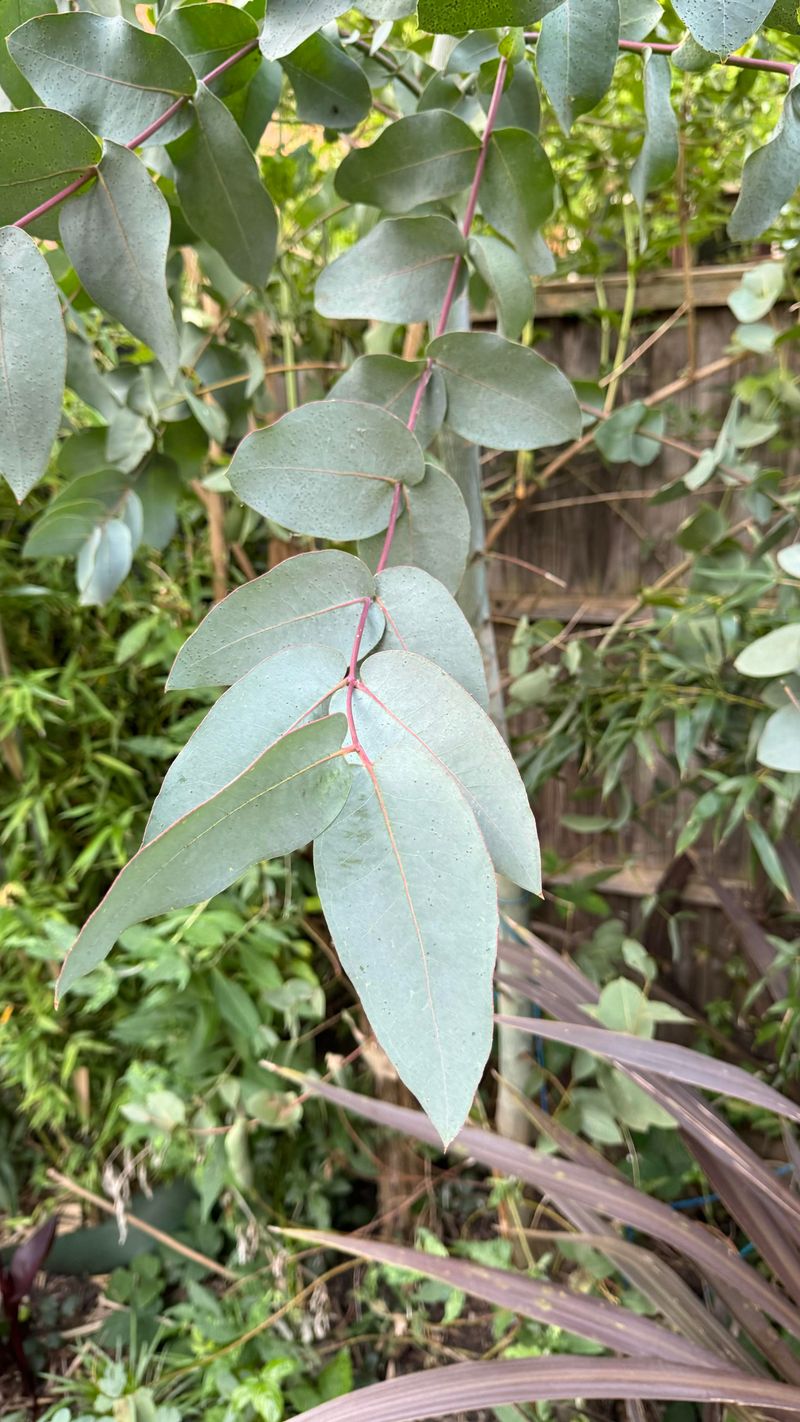
These trees are renowned for their aromatic leaves and rapid growth. However, eucalyptus trees are notorious for shedding bark, leaves, and branches, which can create a mess in a residential yard.
The oil-rich leaves are highly flammable, posing a fire hazard, particularly in dry climates. Their root systems can also cause issues, as they extend far in search of water, potentially disrupting nearby structures.
5. Mulberry
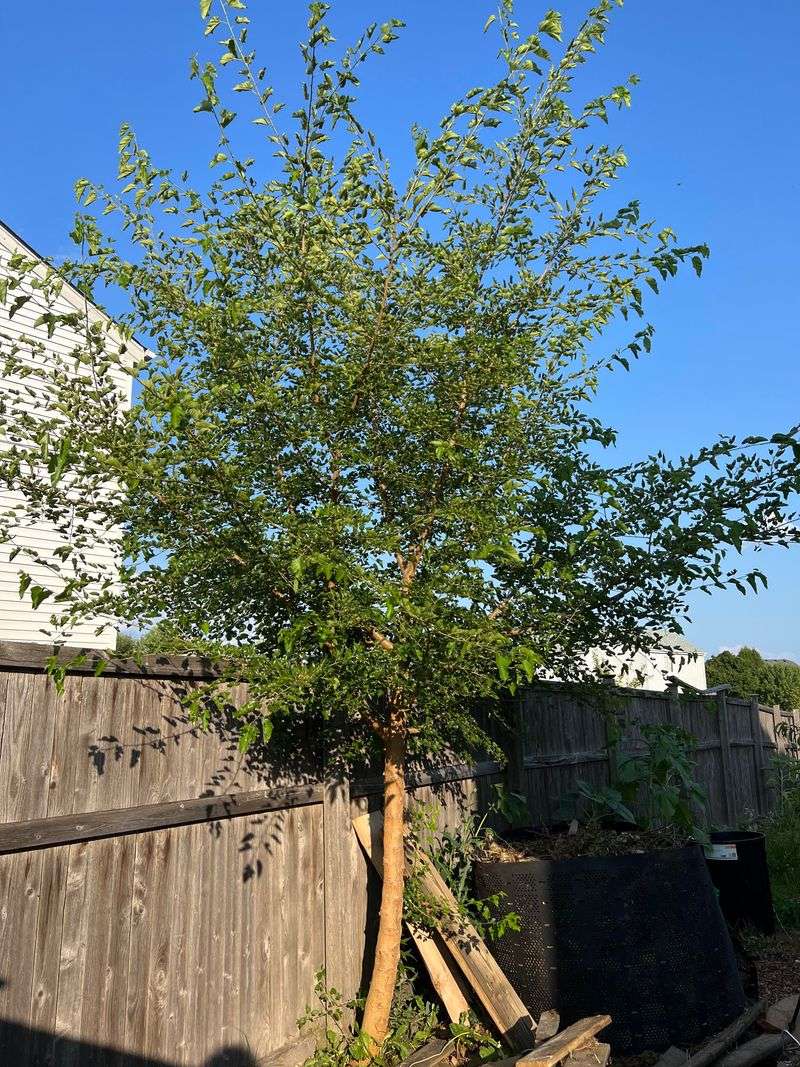
Mulberry trees are often celebrated for their delicious fruits, but they can be a nightmare for homeowners. The fallen berries can stain driveways, sidewalks, and anything else they touch.
Besides the mess, their pollen is highly allergenic, which can cause discomfort for allergy sufferers. The roots are invasive and can disrupt nearby structures and underground utilities.
While the fruits might be tempting, the upkeep and potential allergy issues make mulberries a challenging choice for residential areas.
6. Oak Trees
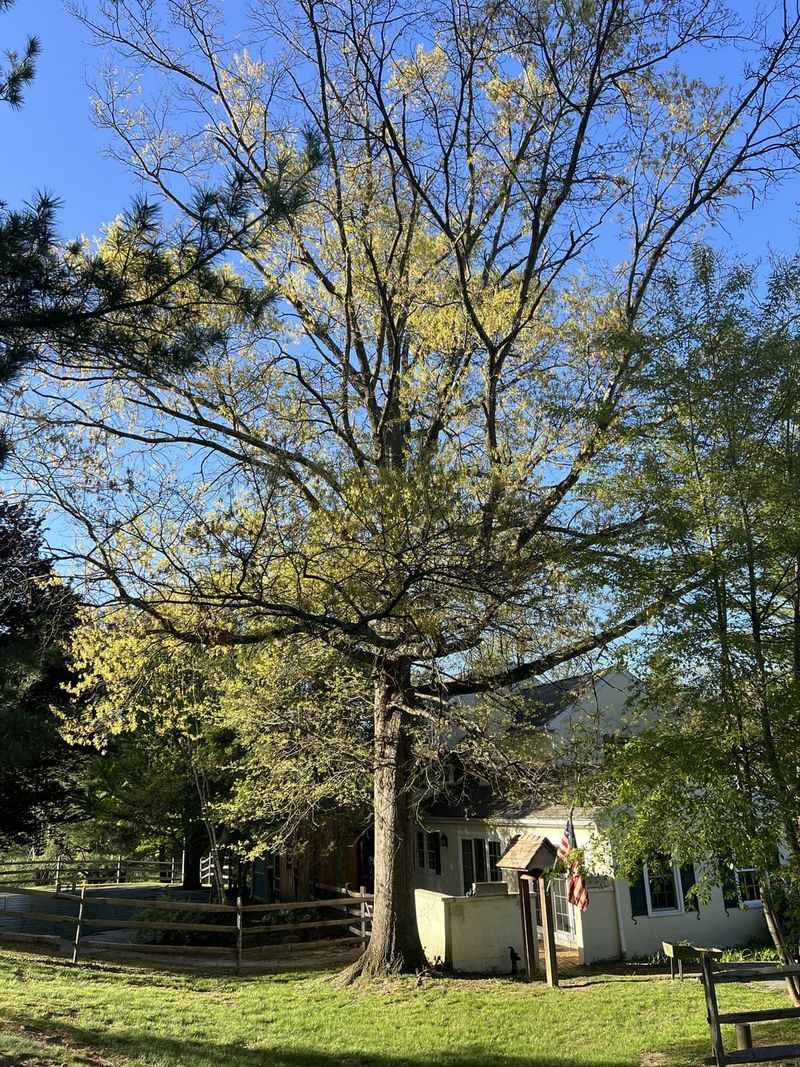
Majestic and long-lived, oak trees are often prized in landscapes. However, they require ample space to thrive. Their extensive root systems can cause damage to sidewalks, foundations, and sewer lines if planted too close to a house.
Acorns might pose a nuisance, littering lawns and driveways throughout the season. While oaks can provide excellent shade and aesthetic appeal, they need room to grow without causing issues to nearby structures!
7. Cottonwood
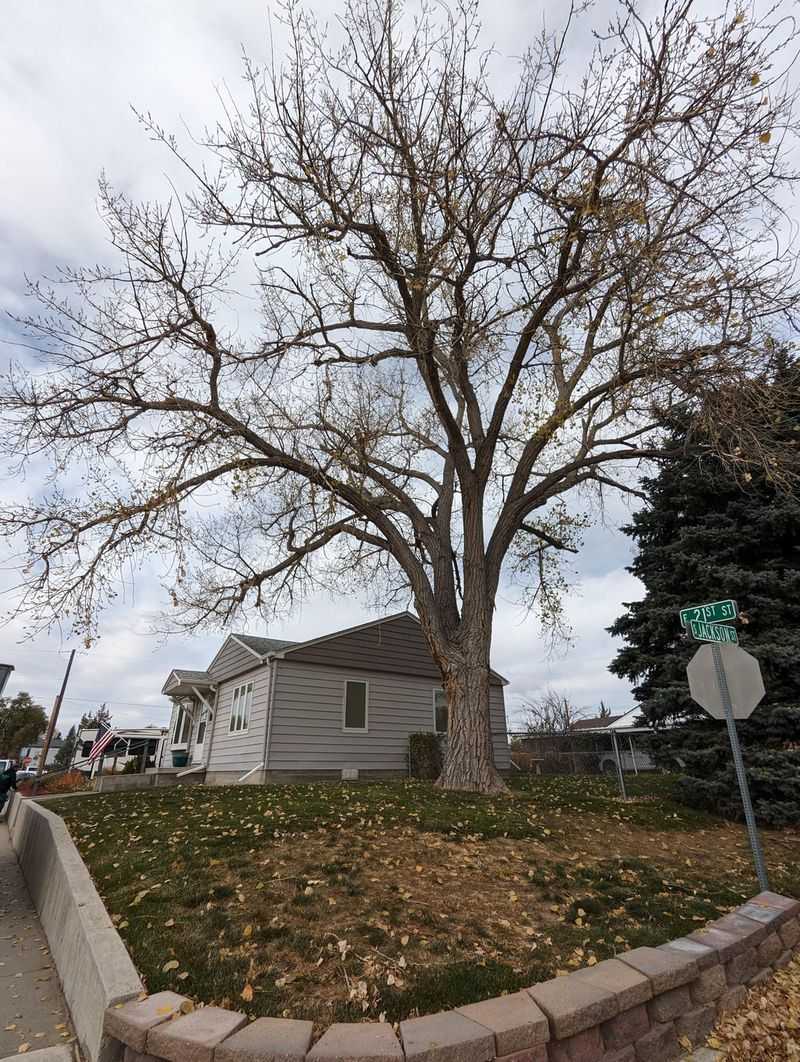
Cottonwoods are appreciated for their towering height and rapid growth. However, they release a fluffy, cotton-like seed that can be overwhelming in residential areas.
The fluff can clog gutters, air conditioners, and litter the yard, creating additional maintenance work for homeowners. Cottonwoods also have weak wood, making them prone to damage during storms.
Their extensive root systems can be invasive, leading to potential damage to nearby structures and underground utilities. Be mindful of these challenges before planting cottonwoods near your home.
8. Bradford Pear
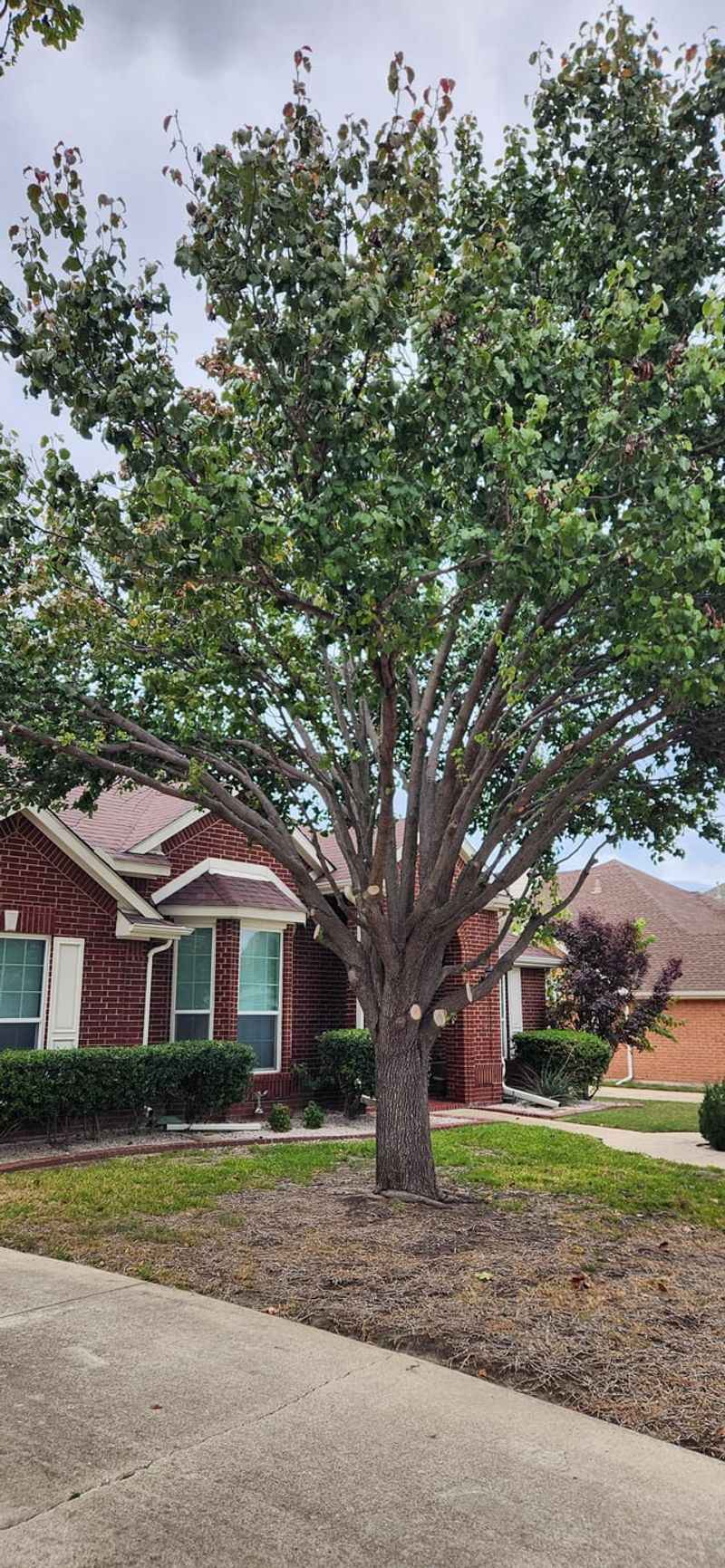
Celebrated for its springtime blossoms, the Bradford pear has a notorious reputation among homeowners. Its weak branch structure means it often splits and breaks during storms.
This structural instability can lead to property damage, making it a risky choice for residential areas. Additionally, it’s known for being invasive, spreading quickly and out-competing native flora.
While the blooms are beautiful, the maintenance and potential for damage might make other ornamental trees a more suitable choice for your yard.
9. Poplar Trees
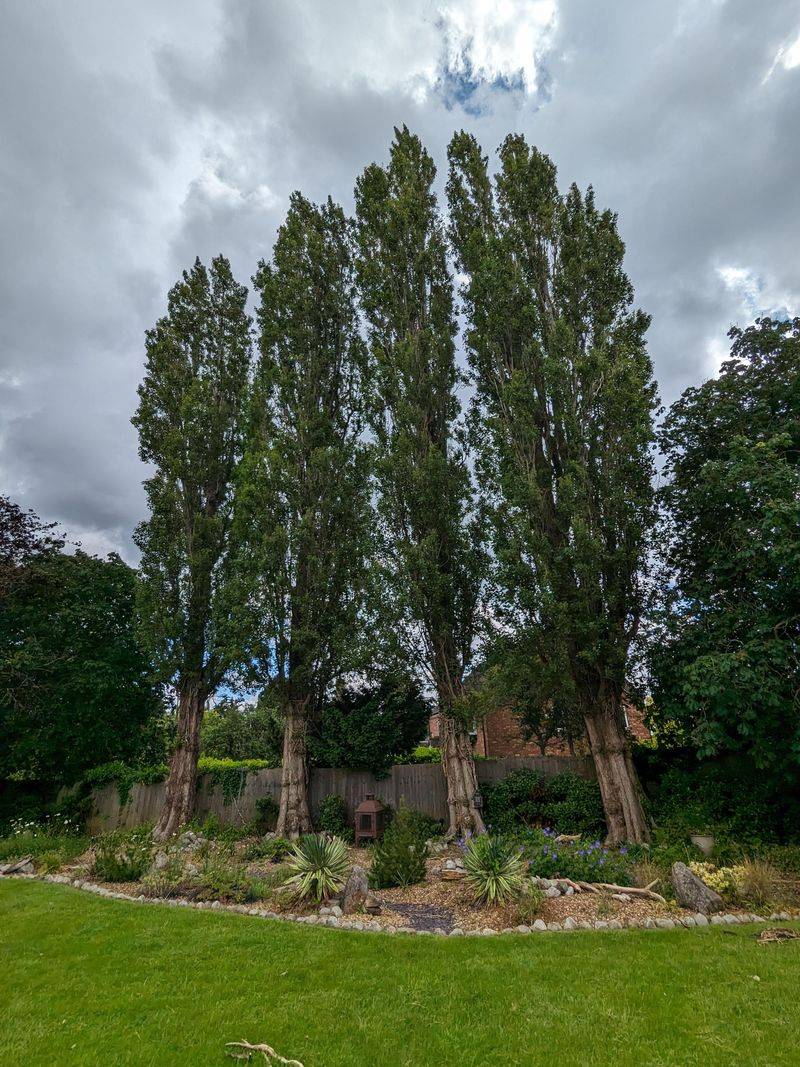
Poplars grow fast and tall, which might seem ideal for quick landscaping. However, their rapid growth comes with a downside. The wood is prone to disease and breakage, making them susceptible to storm damage.
Their shallow roots can invade lawns and gardens, and they can even disrupt underground utilities. Poplars also tend to shed leaves and branches, creating mess and maintenance challenges.
While they can offer quick privacy or windbreaks, the ongoing care and potential issues might outweigh the benefits of planting them near homes.
10. Black Walnut
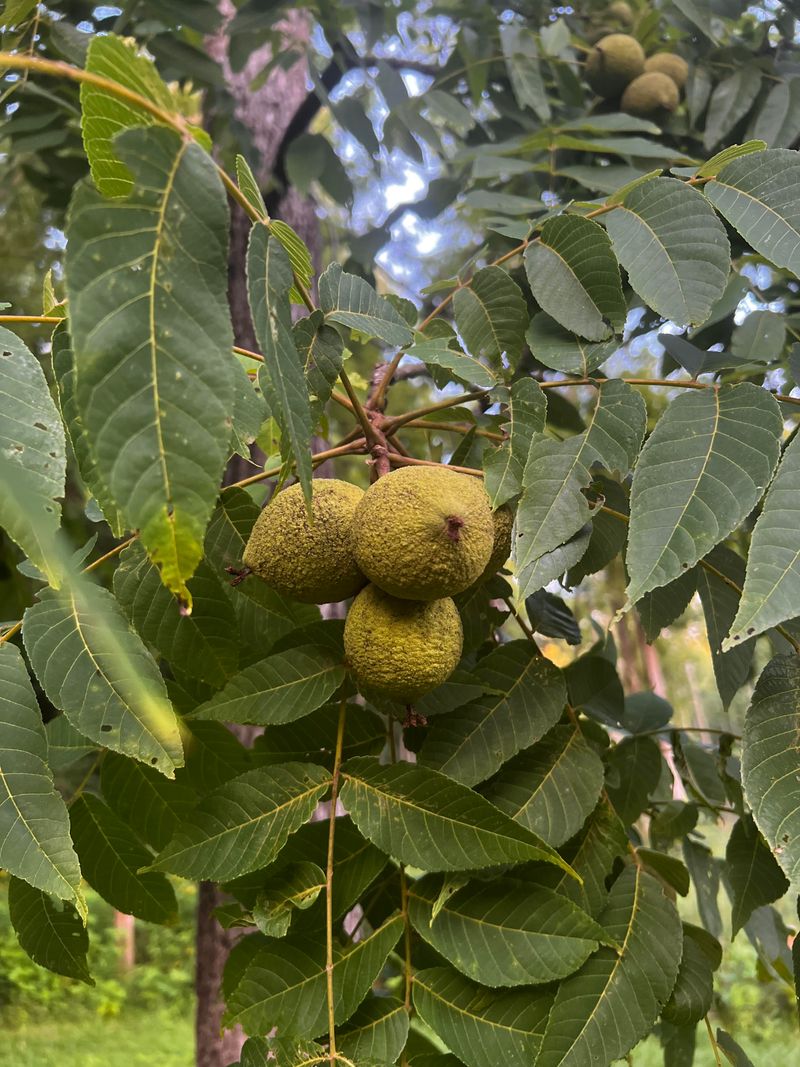
The black walnut might provide beautiful shade, but it comes with a unique challenge: juglone. This chemical secreted by the tree can inhibit the growth of many nearby plants, affecting your garden’s health.
The nuts themselves can be a hazard, posing risks to lawnmowers and creating a mess. Their roots can grow extensively, potentially disturbing structures and underground utilities.
Although they might be appealing for their robustness and shade, consider the impact on your garden and surroundings before planting a black walnut near your home!
11. Ginko Biloba
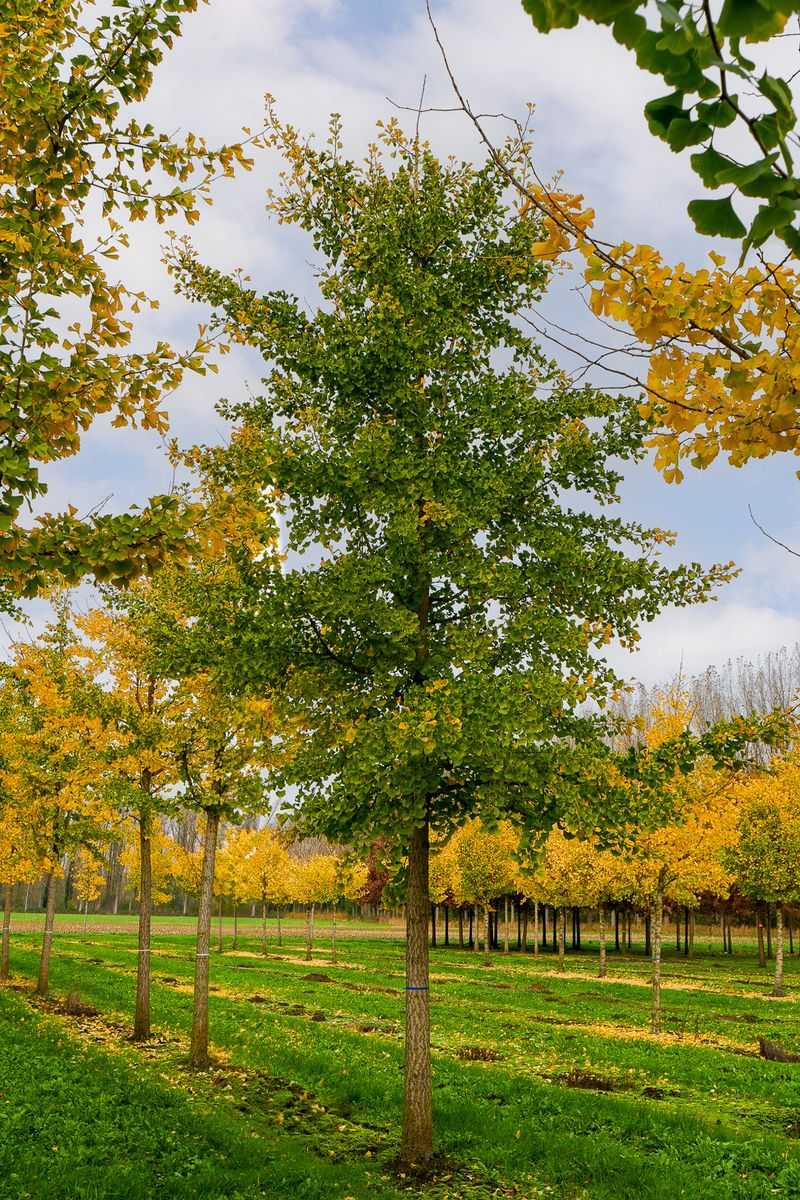
Admired for its fan-shaped leaves and resilience, the ginkgo tree is not without its drawbacks. The female trees produce fruits with a notoriously unpleasant smell, often compared to rancid butter.
These fruits can create a mess and odor problems in residential areas. Additionally, the cleanup can be tedious as the fruits drop in large quantities!
12. Sycamore Trees
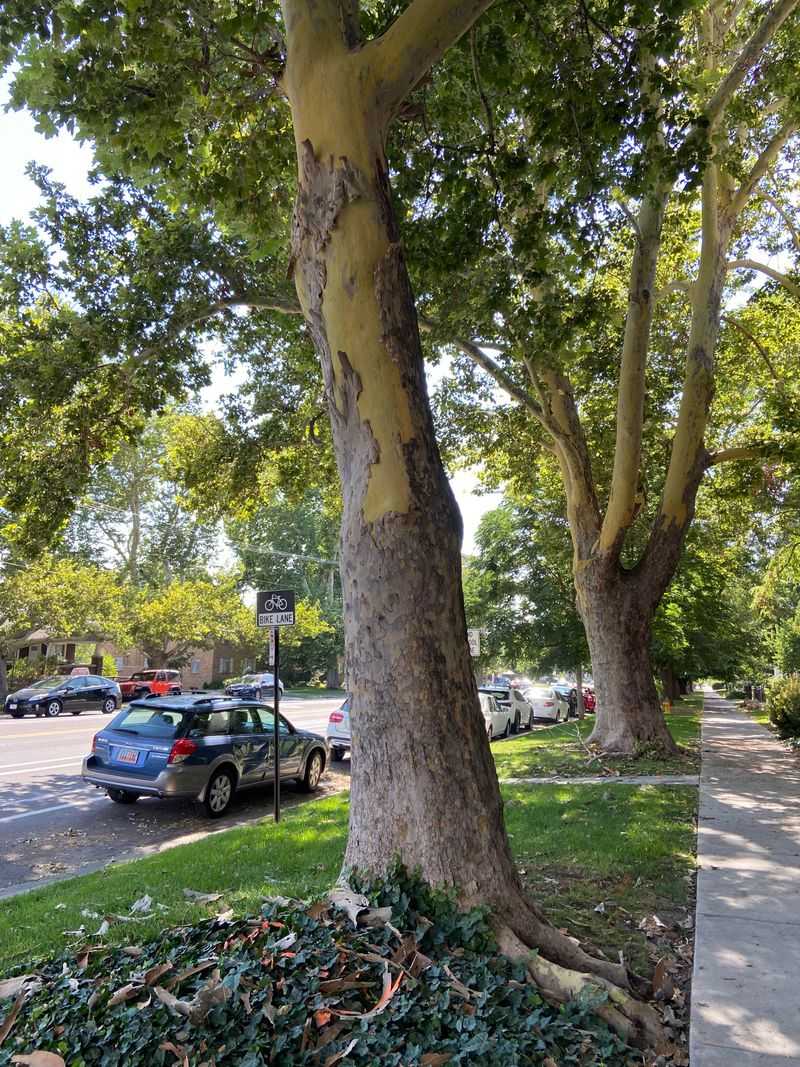
These trees are known for their impressive height and distinctive bark, but they can become a burden in residential areas. Sycamores require a lot of space to grow, and their massive size can be overwhelming.
Their roots can cause damage to nearby structures and underground utilities if not given enough room. Additionally, they shed leaves and bark regularly, requiring constant cleanup.
13. Norway Maple
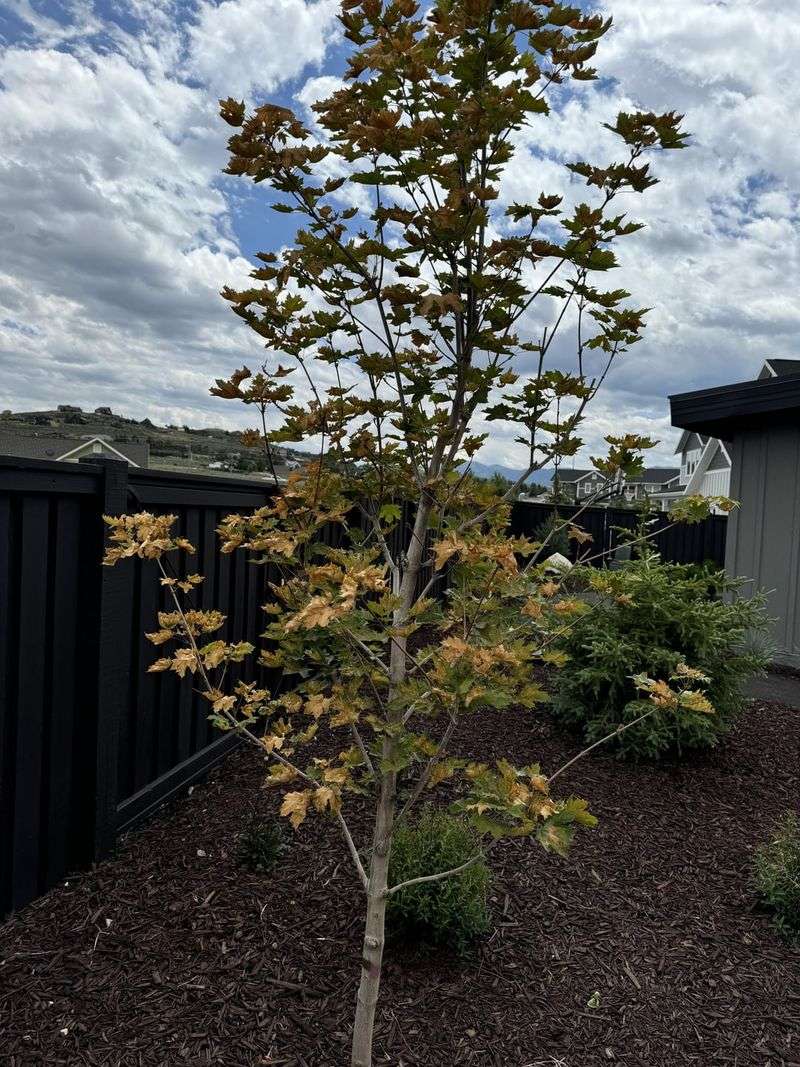
While providing dense shade, the Norway maple can overshadow your garden in more ways than one. Its roots compete aggressively for nutrients, often outcompeting other plants in your yard.
The dense canopy and shade can also hinder the growth of grass and other flora underneath, leaving bare patches. Furthermore, these trees can become invasive, spreading seeds widely.
14. Tree of Heaven
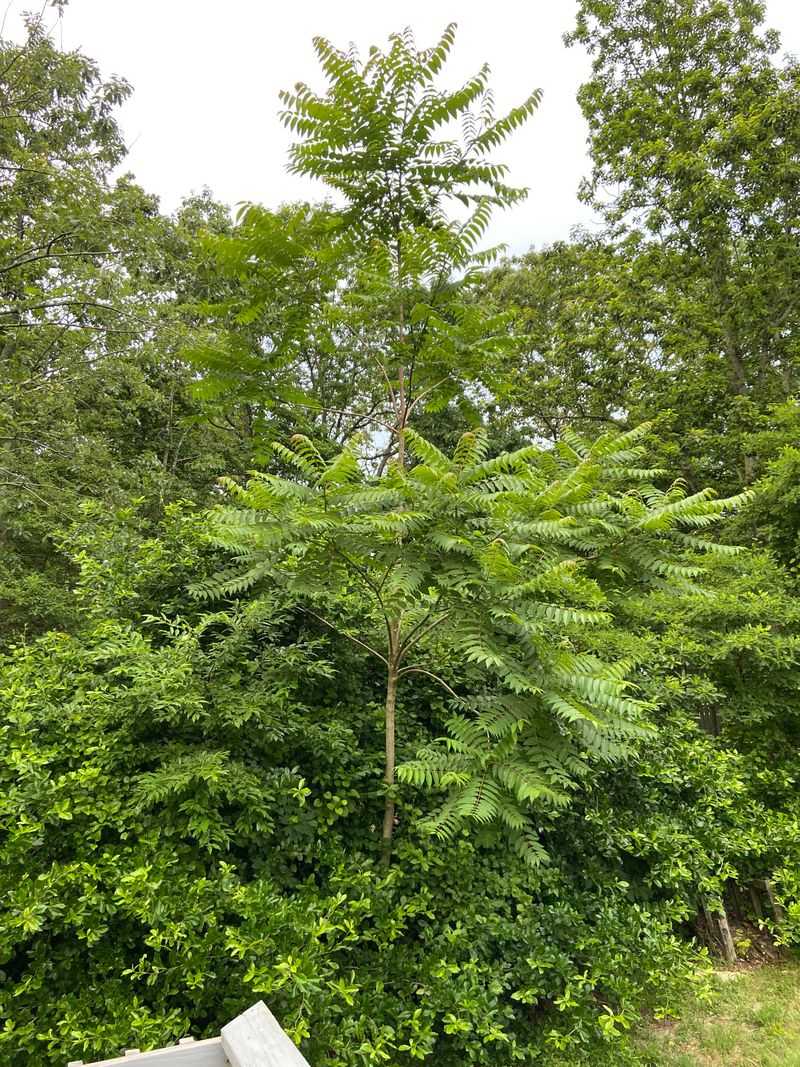
Despite its heavenly name, this tree is often considered a nuisance. Known for its rapid growth and ability to thrive in poor soil, the tree of heaven can quickly become invasive.
Its roots can damage infrastructure and the tree emits an unpleasant odor, particularly from its flowers. In addition, it secretes chemicals that inhibit the growth of other plants.
15. Leyland Cypress
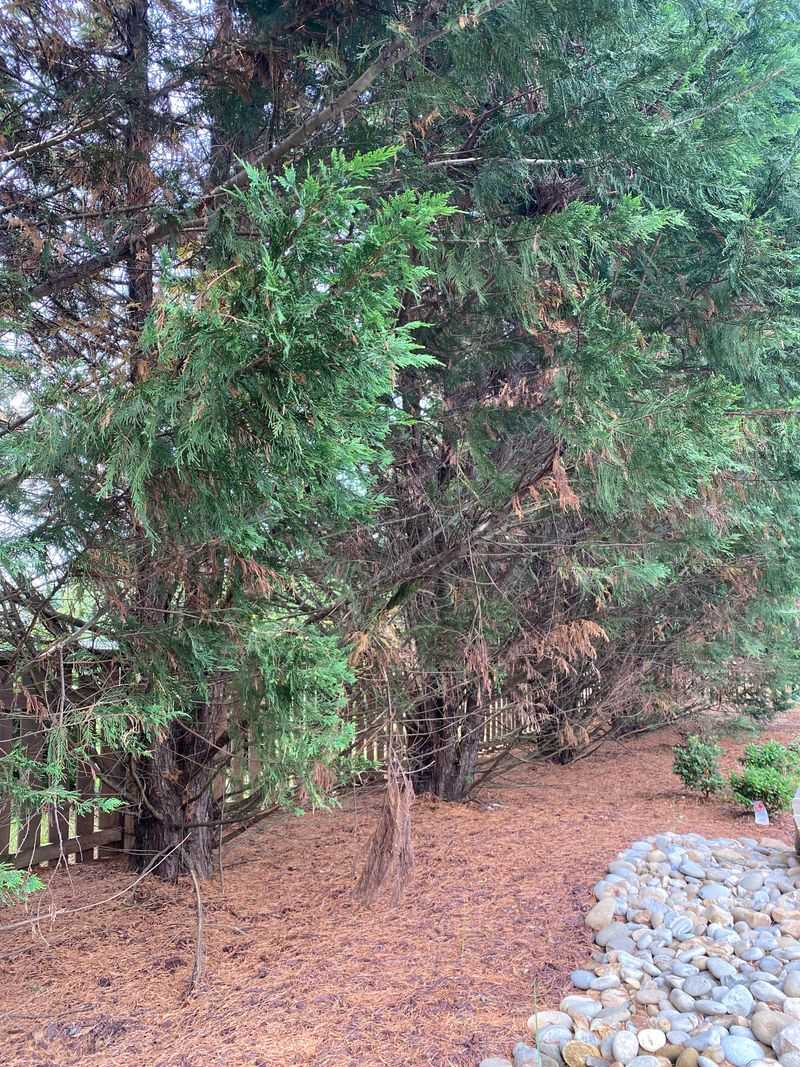
Praised for its rapid growth and use as a privacy screen, the leyland cypress can present significant issues near homes. These trees require a lot of water, which can lead to competition with other plants in your yard.
Their dense foliage can block sunlight, affecting grass and plants beneath. These trees are also prone to disease, which can lead to rapid decline and require significant maintenance.
16. American Elm
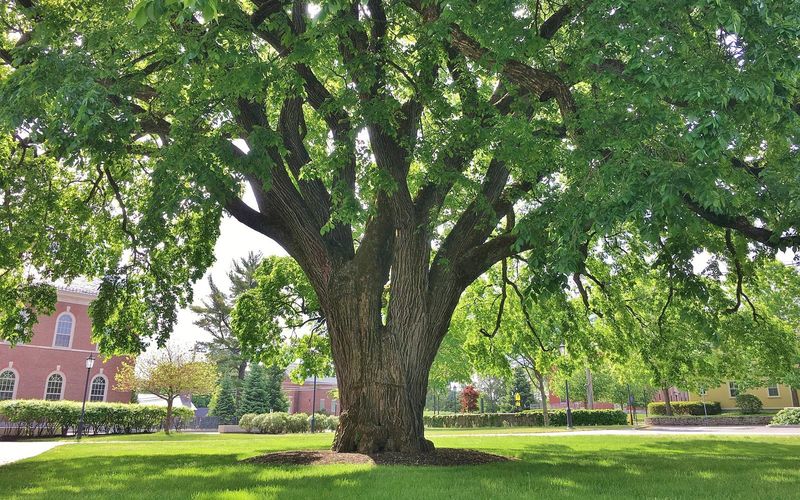
Once the pride of American streets, the elm has faced challenges with disease, particularly Dutch elm disease. These trees are large and require ample space to thrive, making them less suitable for small yards.
Their roots can damage nearby structures and they require regular maintenance to manage their size and health. While they provide excellent shade, the risks and upkeep can be considerable.
Before planting an American elm, consider the space and potential for disease that might affect this majestic tree.
17. Aspen Trees
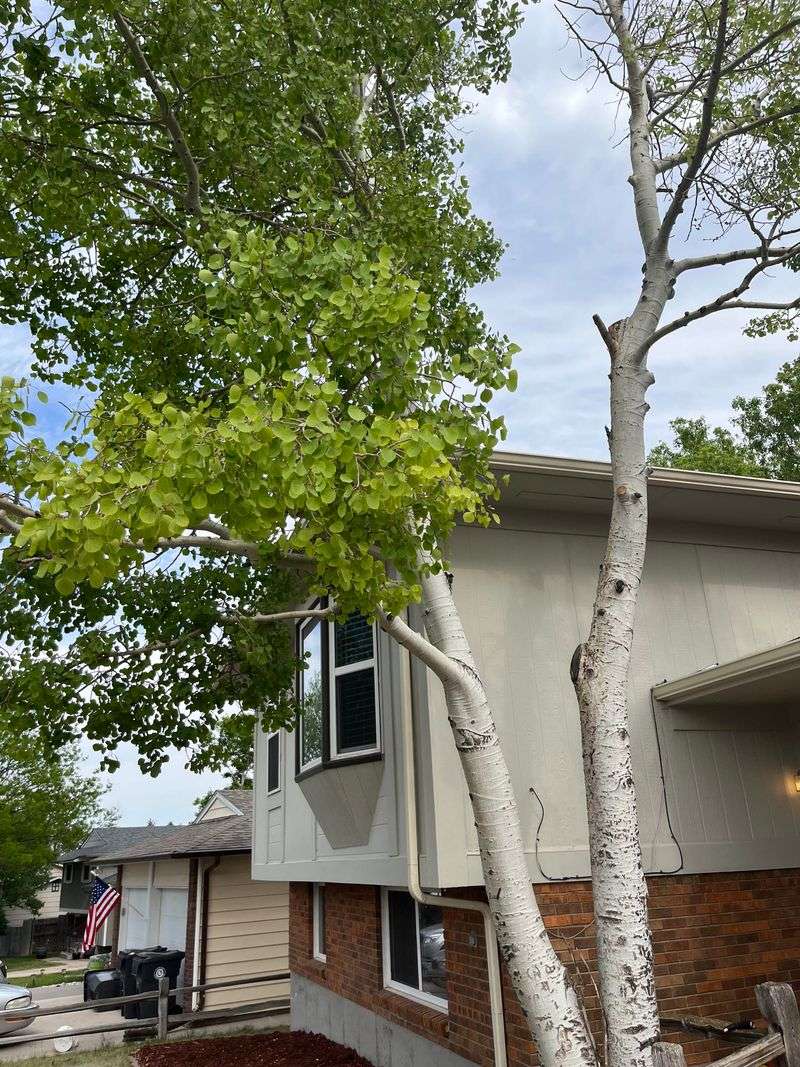
With their striking white bark and fluttering leaves, aspens are beautiful but problematic near homes. Their roots are highly invasive, spreading quickly and potentially causing damage to foundations and underground utilities.
Aspens also tend to form colonies through their root systems, which can take over a yard if not controlled. The wood is weak, making them prone to storm damage.
While they add beauty to landscapes, the invasive roots and maintenance challenges make them a risky choice for residential areas.
18. Birch Trees
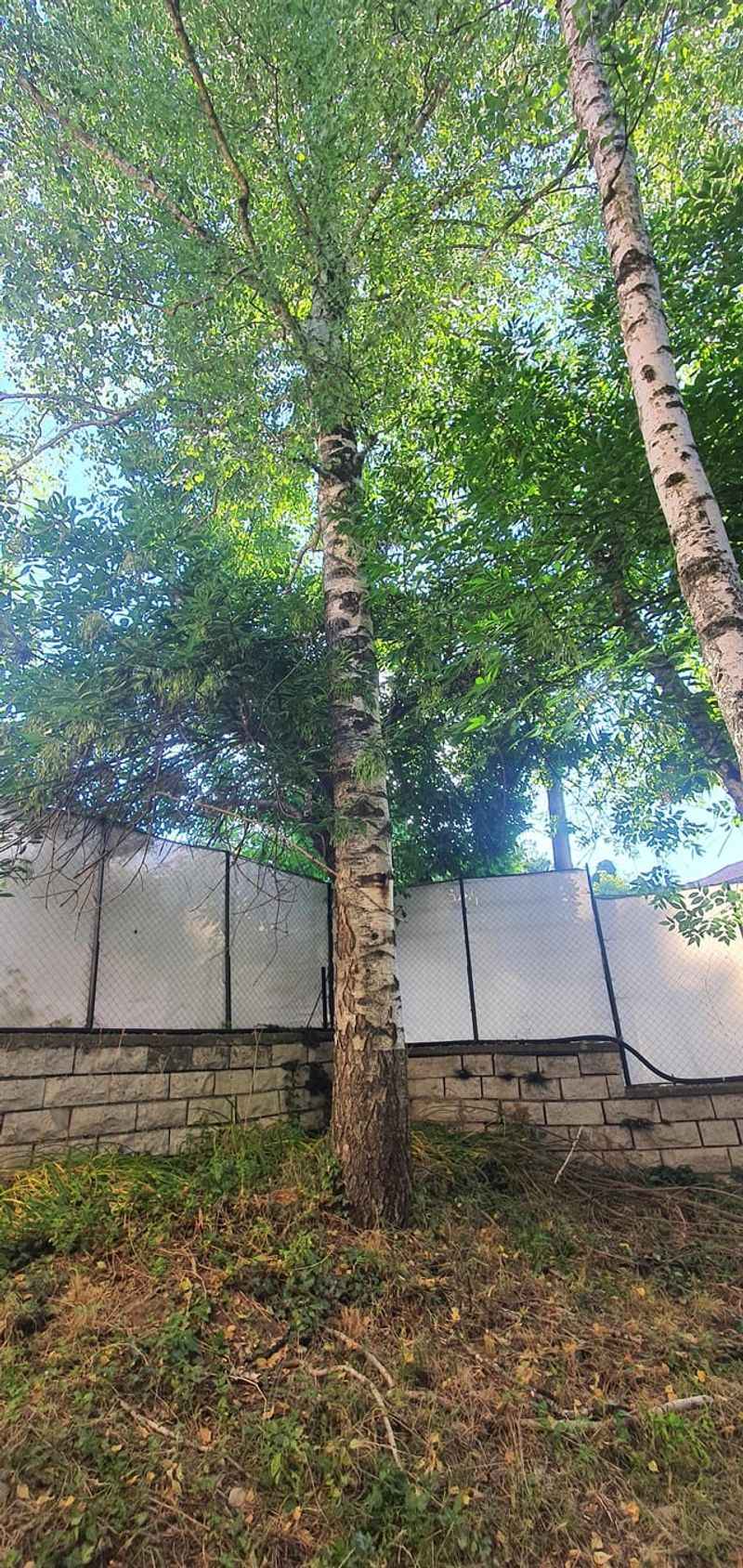
Known for their attractive bark and delicate leaves, birches can struggle in the average yard. They require specific conditions to thrive and are susceptible to pests and disease.
Their roots can become invasive and compete with other plants, potentially causing disruption to lawns and structures. Additionally, they need a lot of water, which might not be sustainable in all regions.
While lovely in appearance, consider the care requirements and potential issues before planting birch trees near your home.
19. Mimosa Trees
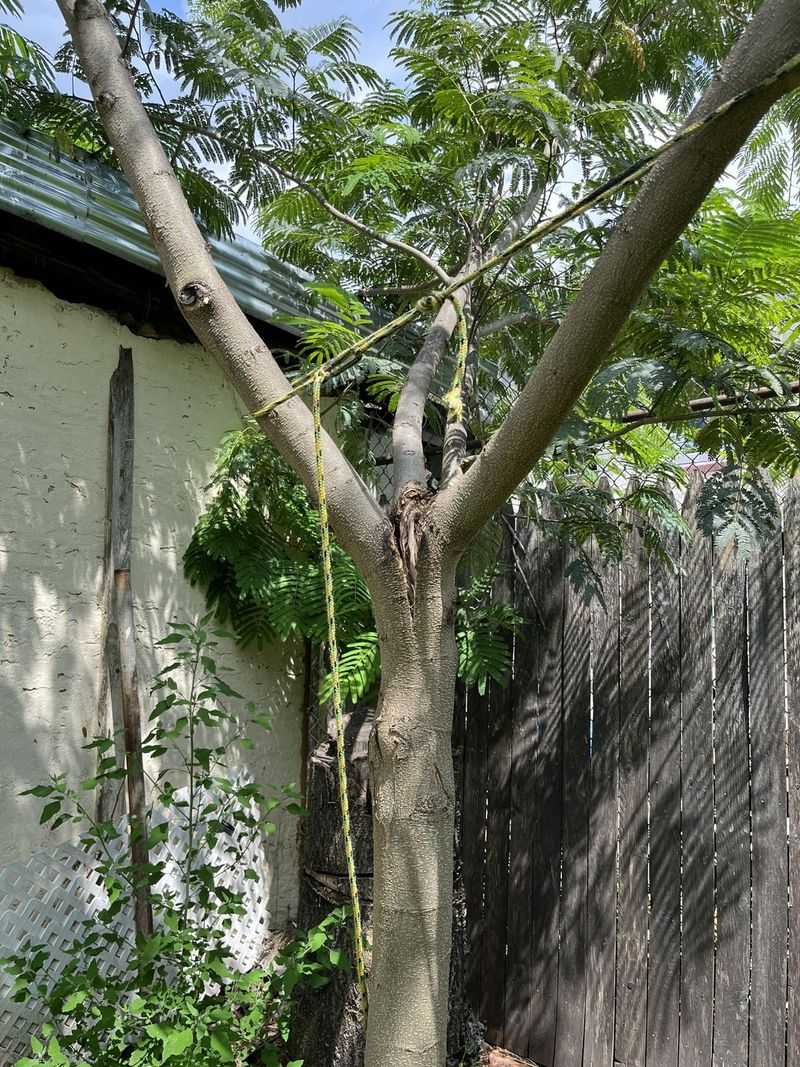
Mimosa trees, with their fluffy pink blooms, can add a touch of whimsy to any garden. However, they are highly invasive, spreading seeds rapidly and taking over native vegetation!
Their wood is weak, making them susceptible to breaking during storms, which can pose a risk to nearby structures. They are also prone to diseases, requiring vigilant maintenance.
Despite their beauty, the invasive nature and upkeep associated with mimosa trees may outweigh their charm in residential settings.
20. Russian Olive
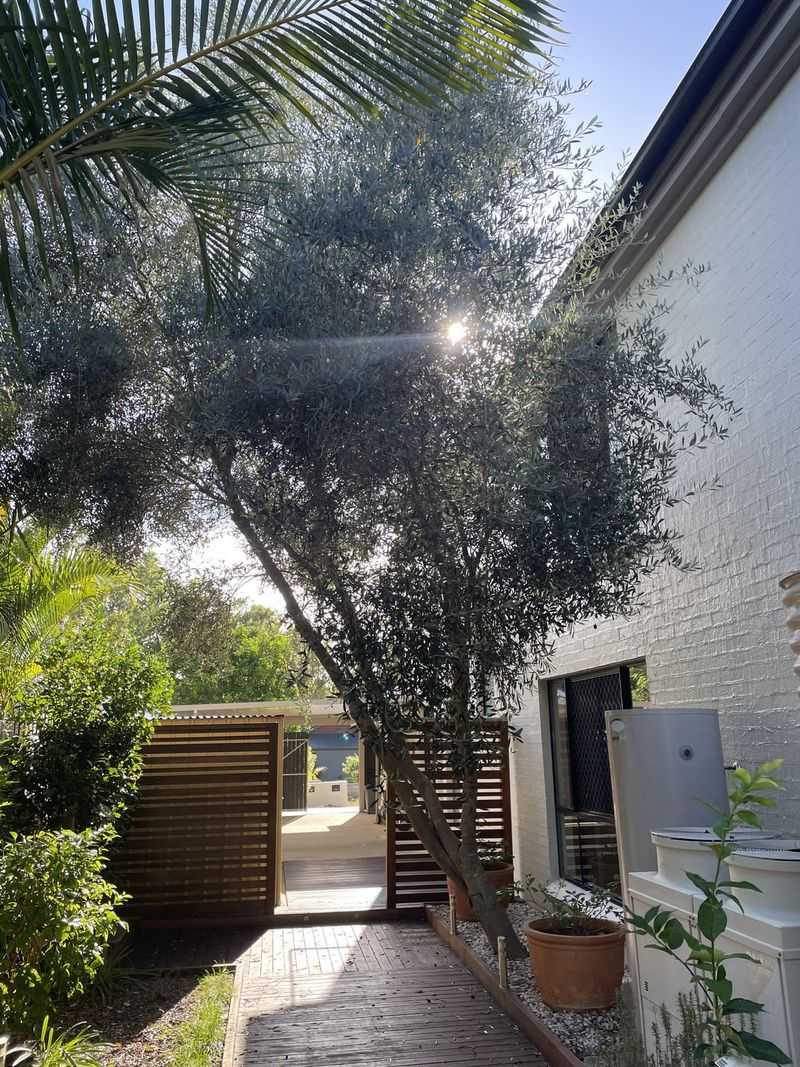
The Russian olive, with its silver leaves, can be a striking addition to a landscape, but it’s notorious for being invasive. It spreads rapidly, outcompeting native plants and disrupting local ecosystems.
The thorns can pose a hazard, especially in areas where children or pets play. Additionally, its rapid spread can require significant management to prevent it from overtaking your yard.
21. Leyland Cypress
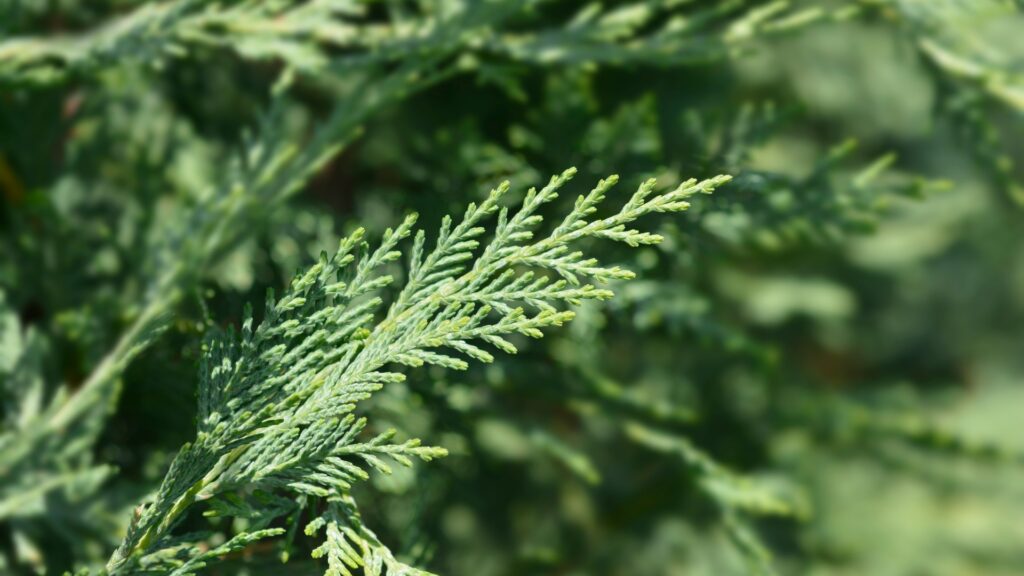
At first glance, Leyland cypress seems like a perfect privacy screen—fast-growing, tall, and evergreen. But its rapid growth is exactly what makes it problematic near houses.
These trees get big, and their shallow root system can lead to instability in strong winds. They’re prone to disease and pest issues too, especially when planted too close together (which is common for privacy hedges). Plus, their dense growth can block airflow and sunlight, contributing to mold or dampness around your home.
If you’re looking for a hedge or screen, there are better-behaved options out there.
22. Chinese Tallow Tree
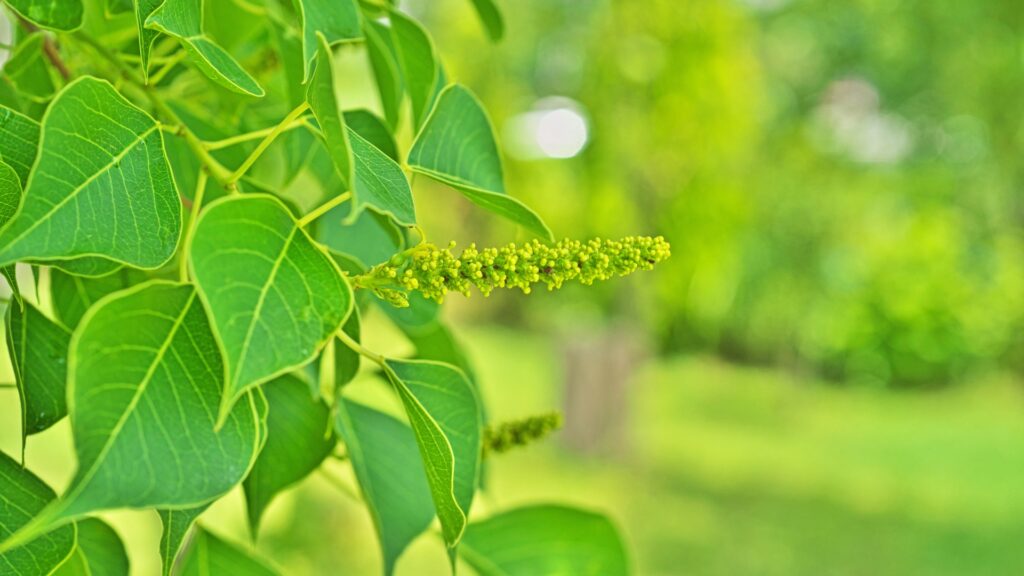
Nicknamed the “popcorn tree” for its white seeds, the Chinese tallow tree is another invasive species that’s gained a bad reputation. While it offers vibrant fall color, its roots spread aggressively, and it self-seeds prolifically—leading to rapid, uncontrolled growth.
Its leaves and sap are also toxic to animals, and it alters the soil chemistry, making it harder for native plants to survive. Once it’s in your yard, it can be tough to control.
Though it may look pretty, its invasive nature and toxic qualities make it a tree best admired from afar.
23. Sweetgum Tree
Recognizable by its star-shaped leaves and vibrant autumn colors, the sweetgum tree might seem like a charming addition to your yard. However, its infamous spiky seed pods, often called “gumballs,” can quickly become a serious nuisance.
In addition to the debris, sweetgum trees grow quite large and develop aggressive root systems that can lift sidewalks, invade pipes, and damage foundations. Their wood, while generally strong, is prone to damage in storms, especially as the tree ages.
Though they offer beautiful seasonal color, the maintenance demands and potential hazards make sweetgums a less-than-ideal choice for planting near your home.

